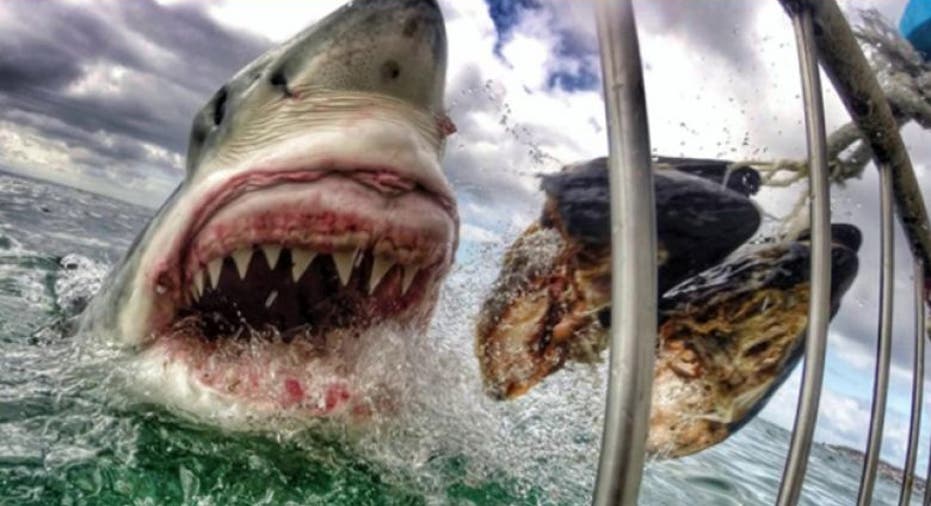The Government's "Jaws" & the Threat to Intellectual Property & Trade Secrets

This might seem like an inflated fish story. It is not.
Having served in the public sector in various capacities for 30 years, I know that when something is done in government that is novel and innovative, well it’s a big hairy deal. It can also have potential to be a real recipe for disaster. That is presently the case at one government regulatory agency seeking to obtain private intellectual property from individuals and firms. It is particularly precedent-setting and could easily be required by other governmental agencies, unless those concerned make their voices heard. To date, that’s not occurred and in this instance, the Commodities Futures Trading Commission (CFTC) is barreling down this dangerous unpaved highway, Reg AT (Regulation Automated Trading), in tow.
Imagine a marketplace in which government is allowed access to the secret recipe for Coca-Cola (NYSE:KO), the algorithms for a Google (NASDAQ:GOOGL) search, bio-genetically engineered therapeutics, or for any number of other highly-guarded trade secrets. What becomes of the private sector when incentives for innovation and protections for IP owners no longer exist? What is done with the proprietary formula once in government hands? How is it protected? Who has access? Can Freedom of Information Act requests (FOIA) be used to obtain access? How about wink and a nod access? What about government employees who learn secrets then leave government to work for competitors? Oh, and what about foreign or domestic security breaches? There are those.
As Police Chief Brody said to Captain Quint when they were searching for the mad great white shark in the movie Jaws, “We’re gonna need a bigger boat.” That is, supporters of individual and firm rights and those that care about due process prior to the government obtaining private intellectual property need to speak up. They should comment upon this rule once it is proposed, which is expected to occur on Friday morning at the CFTC’s meeting.
The proposal is just a bad idea. Here’s why:
1) Private intellectual property often takes years and millions of dollars to develop. As the name suggests, it is “private” and should remain so. It is also, many times, protected by patent and trade secret laws. For the individuals or the firms that own it, it could well be their lifeblood. Allowing the government to obtain such highly-valuable and confidential information reeks of the quintessential Big Brother going one step too far. During my seven years as Commissioner at the CFTC there was never a substantive issue with obtaining information from individuals or firms due to using the standard subpoena system. Subpoenas ensure appropriate due process, guarding against government grabs and over-reach.
2) This over-reach, however, doesn't seem to concern regulators. In Jaws, as Chief Brody is endeavoring to determine if a caught shark is the culprit to killings, he suggests to his wife, “Why don’t we have one more drink and go down there and cut that shark open?” Mrs. Brody asks, “Can you do that?” The Chief retorts, “I can do anything. I’m the Chief of Police.” Well, that’s sorta what the CFTC seems to be saying. They are the regulator and they can do this, even if it abridges rights of individuals or firms.
Furthermore, there’s no guarantee that such private intellectual private property would remain safe and secure in the government's hands. After all, we see cyber security breaches all the time, in the private sector and especially in government. Up the ante for the valuable intellectual property data and the motivation for hacking and theft escalates exponentially. Just last Friday the CFTC’s own website crashed, ironically only moments after the Agency announced the public meeting on this problematic proposal. The agency can’t keep their website up and running, but it will protect your intellectual property? Right.
In fact, while I served at the CFTC our cyber security was breached and all personnel records became available to the hackers. In the recent past the Federal Reserve, Federal Deposit Insurance Corporation and even the Internal Revenue Service were all hacked. The mother of all government hackings occurred last year when the Office of Personnel Management was breached and the culprits had access to 21.5 million records!
Bottom line: When the government says, “Trust us,” hold onto your wallets and your private intellectual property.
This policy proposal is a high-risk and fundamentally flawed attempt to grab privately held intellectual property and trade secrets for the presumed purpose of even more intensely regulating markets. The problem is that no reasonable explanation has been offered for why it is needed. That said, it won’t stop government from going forward unless those concerned about this extraordinary over-reach react and comment. If they don’t do so, one thing is clear: like Jaws, government will become acutely carnivorous, continuing to eat and eat, devouring our private information and competitiveness often—unintentional as it might be—with careless disregard.
Bart Chilton served at the CFTC from 2007-2014 and is the author of Ponzimonium: How Scam Artists Are Ripping Off America. He can be reached at bartchiton@bartchilton.com.



















